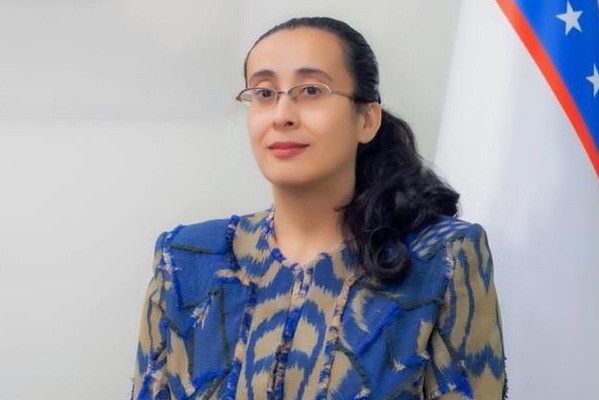
Ambassador Feruza Mahmudova: We are proud of our tolerant attitude and hospitality
Tashkent, Uzbekistan (UzDaily.com) -- Daily newspaper of Israel "Haaretz" published an article of journalist Moshe Gilad about Jewish culture and its existence in Uzbek land, Dunyo news agency reported.
The author notes that the Great Silk Road is reviving today as a tourist and cultural destination. In this context, it is reported that a new initiative with a centre in Israel, the ‘Jewish Silk Road’, is being developed, overseen by the US-Israeli NGO ‘World Jewish Travel’, headed by Jack Gottlieb.
It is noted that the Jewish Silk Road project is an attempt to locate, collect and make accessible information about Jewish sites, museums, monuments, synagogues and cemeteries along the central routes between Italy and China, with their side branches to India and other countries," the author explains.
The Jewish Silk Road project includes five countries in its initial phase: Azerbaijan, Georgia, Turkey, Uzbekistan and India.
It stresses that the countries participating in the project are motivated not only by tourism or cultural reasons, but also see in the project an opportunity to promote tolerance. The project gives the partner countries an incentive to preserve, invest in and improve the infrastructure of Jewish heritage sites.
In the article, the author talks to project manager Jack Gottlieb.
"Essentially, we are engaged in a search for lost culture," said Jack Gottlieb. - The Silk Road has attracted a lot of attention and is considered an attractive topic around the world. The Jewish aspects of the route have so far not received the attention they deserve. These are colossal treasures. There is so much to see. What is interesting is that throughout the region of Central Asia, the Holocaust did not happen. In Europe, history is divided into "before and after the Holocaust". This is not the case in Central Asia, which is why you will find material evidence such as synagogues, cemeteries and sites that are hundreds of years old, allowing you to arrange a visit from an authentic Jewish perspective."
The author reports that the information gathered by Gottlieb’s organization shows many Jewish settlements along the Silk Road. Most of them date to the late fourteenth century, but form a long and interesting chain of Jewish culture linking Europe and Asia.
The article focuses particularly on Samarkand and Bukhara, the latter of which was the centre of Jewish life in the Central Asian region in the Middle Ages.
"Old houses that are at risk of disappearing have been included in the World Monuments Watch project to encourage the documentation and preservation of Bukhara’s urban Jewish homes. Besides them, Bukhara has hundreds of well-kept mosques, madrassas and bazaars," the article said. - In the streets of Bukhara’s Jewish quarter, one can see earthen houses and traditional Bukhara Jewish houses in need of preservation. Many houses have carved doors, often with 300-year-old columns or ceiling beams".
The author quotes Uzbekistan’s ambassador to Israel, Feruza Makhmudova, who noted that Uzbekistan currently has 130 different nationalities living in the country that practise 16 religions, one of which is Judaism.
"We are proud of our tolerant stance and hospitality. These are characteristic features of the Uzbek people. We treat representatives of all religions and cultures and members of all national minorities with great respect, and we hold Judaism in particular in high regard. I often come across the question about the Muslim and conservative nature of the country, but that question shows how little many Israelis know about Uzbekistan. We are an open and welcoming country. It is Islam that you should become familiar with in Uzbekistan. Last year, more than 11,000 Israelis visited our country. There are eight Jewish cultural centres in the country," the ambassador told a journalist.
"This heritage is part of our culture and identity. The aim of our participation in the Jewish Silk Road project is to introduce Israelis to their heritage, which we preserve. This covers active cooperation with Israeli tourism companies in order to attract Israelis to visit our country. Today, great efforts are being made in Uzbekistan to improve tourism infrastructure and build modern hotels and logistics. A new airport in Samarkand has been put into operation in the context of being presented as the ‘gateway to the New Uzbekistan’," she added.